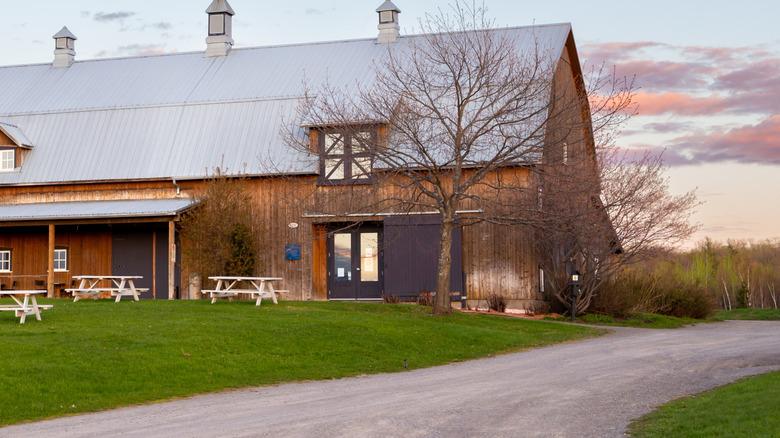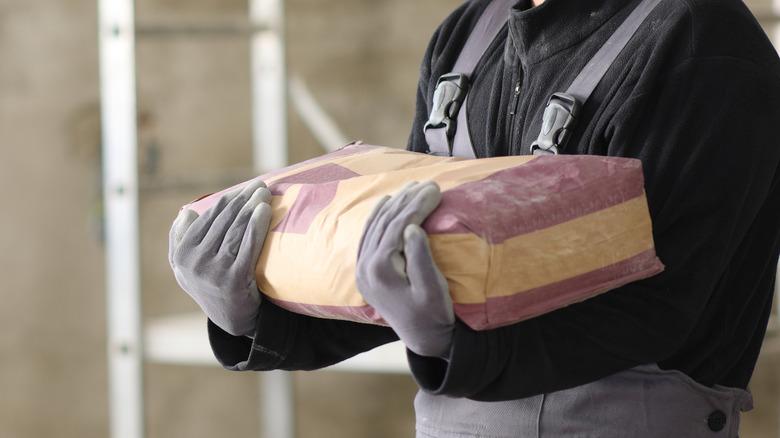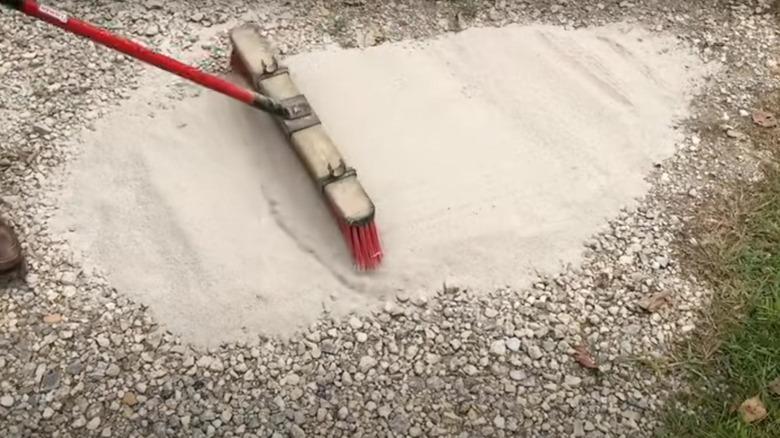Is Concrete Powder The Key To A More Durable, Longer-Lasting Gravel Driveway?
Driveways that use gravel are extremely common and have been for hundreds of years. Why? Because they are durable, easily repaired, attractive, ecologically sound, long-lived, and affordable. Hard to beat, right? Recently, DIY sites and videos have recommended adding concrete powder to existing gravel driveways. The goal of adding concrete powder is to increase the durability and life of a gravel driveway. The question, of course, is: Will it add that benefit?
Gravel is a general term that describes an aggregate of various types of small rock pieces, caliche, granite, pea gravel, marble, etc. A driveway made from gravel should be a layer between 4 and 6 inches thick, placed on a prepared piece of ground. A well-made gravel driveway will shed and drain water effectively and block weed growth. Some downsides to a gravel driveway are that potholes are easily formed. Another annoyance is that rocks often spread to the area adjacent to the driveway, harming lawnmower blades and bare feet. After some time, the gravel will collect dirt and dust, providing a medium for weeds to grow in the gravel. All of this requires maintenance.
Adding the concrete powder
For the purpose of accuracy, let's look at some terms. Cement, as it is commonly known, is a mixture of compounds made by burning limestone and clay together. When mixed with water, it forms a paste (a binder) that will hold something like aggregate, (a filler) together. Mixing cement and aggregate together with the proper amount of water makes concrete. We use concrete to make so many things like roadways, countertops, swimming pools, and stadiums.
The idea of pouring concrete powder, whether it is a premixed bag with cement powder and aggregate, or something like a bag of Portland cement, on top of a gravel driveway and spreading it around is the technique being recommended. Once the powder is brushed evenly over the gravel, the next step is to add water to activate the cement. The cement and water mixture will settle into the gravel, but will not soak through the entire thickness of the driveway, staying primarily near the top of the aggregate. The cement will bind to the gravel and then cure, becoming hard over a period of time.
Pros and cons of the concrete powder
One benefit is that when the cement has cured it will "glue" the top layer of the gravel together. This will help keep stray rocks from spreading into the surrounding area. It will also create a stronger more cohesive surface, able to stand up to more weight being driven on or dragged across the driveway. With the cement sealing off most of the nooks and crannies in the gravel there will be fewer places for dirt to build up and sprout weeds. It will also be easier to keep the driveway clean by washing away dirt. That will also limit weed growth. Where the gravel is laid on an incline, the binding properties of the cement keep the gravel secure and in place. Those are all benefits.
There are some downsides to be aware of. First, you will need to buy the cement powder, which begs the question of whether the expense will be worth the benefit gained. In addition, the manufacture of cement has a carbon footprint. The relatively thin layer of concrete created by this method can be cracked with comparable ease. The layer of cement will change how the driveway drains away rain and ground water. Whether the change is significant or not, potentially creating a problem will not be known until after the fact. Its weed prevention power will fade over time as cracks develop. The added amount of weed prevention provided may not be significantly greater than gravel's natural weed prevention characteristics.


